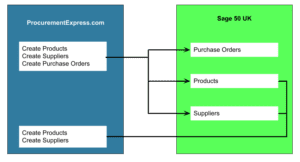
In businesses you simply can’t afford to make any mistakes or accounts payable errors, the goal is to maximize profits and, where possible, reduce/streamline efforts and processes. Mistakes can be costly and even detrimental. One of the most fallible processes in any business is the accounts payable cycle, which is responsible for processing and managing invoices.
According to a survey by the Institute of Management and Administration, 75.8% of vendors and 59.5% of businesses reported accounts payable errors of at least 1%, while a little over 14% of vendors and just under 3% of businesses reported error rates of at least 5%. The numbers are actually likely to be far worse than these, as not everyone would have responded with any data and the reported figures are only the mistakes that have been identified, many mistakes go unnoticed for long periods of time, some are never even noticed, or when they are noticed they are swept under the rug because of the time and effort needed to correct them. Accumulating errors results in time and money being lost in trying to identify where the problem occurred, gathering all the associated data and trying to rectify the mistake.
More and more businesses are now beginning to automate their accounts payable process. Automation software is far more accurate, less labour intensive and infinitely easier to track. With less human interaction and effort involved in the purchasing and invoice processing, there are naturally fewer mistakes made, those that are made are usually easy to spot before they even become an issue.
The most common accounts payable errors are overpayments, duplicate payments, unused credit notes and unclaimed discounts.
Overpayments happen when someone processes the wrong amount, this can be avoided by having one person process the invoice and another person who checks and approves it.
Duplicate payments happen easily if suppliers send invoices to you in multiple formats, say for example by email and post, then someone accidentally pays both invoices. This also sometimes happens when a supplier sends a reminder and the original invoice as well as the reminder are paid.
Always check if you have any outstanding credits from a supplier and deduct this from the invoice before paying or you will essentially be overpaying.
Forgetting to apply a discount that you are entitled to is another common mistake. Most suppliers provide discounts for regular business, prompt payment or volume orders, make sure to keep on top of those discounts.
So we can see that the main things to do to avoid accounts payable errors are:
Have an approval system in place and make sure all purchases go through the approval route.
Organize your system to house all documents together, but subsection the system to group things like departments or budgets or workflow.
Practice Three-way matching. Check that the purchase order, shipping order and invoice all have the same amounts on them.
Carry out regular audits to ensure things are being done correctly, identify common mistakes and spurious spending as fraud also comes into play here.
All of the above can be very complicated and always extremely time-consuming, that’s why the number one way to avoid accounts payable errors is to automate the process. Procurementexpress.com’s solution is beautifully simple to use, everything is in one place, you can attach all associated documentation to the purchase order so you’ll save countless hours with not having to look for things, custom fields and approval routes can be set up at a company or departmental level and you can generate reports with the click of a button, in most cases we will even populate your system for you so it’s all set up and ready to go.
If you’d like to see more, then come along for a free, no obligation demo, just pick a time here and we’ll show you all the pain relief we have available, it only takes around 15 minutes (Yes it’s just that easy to use) and it could change the way you do business forever.



